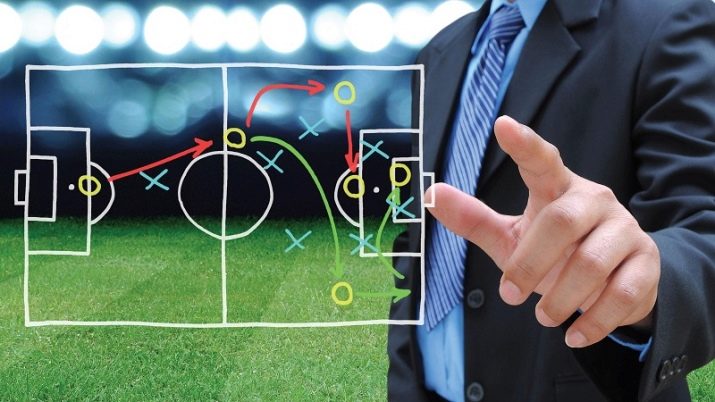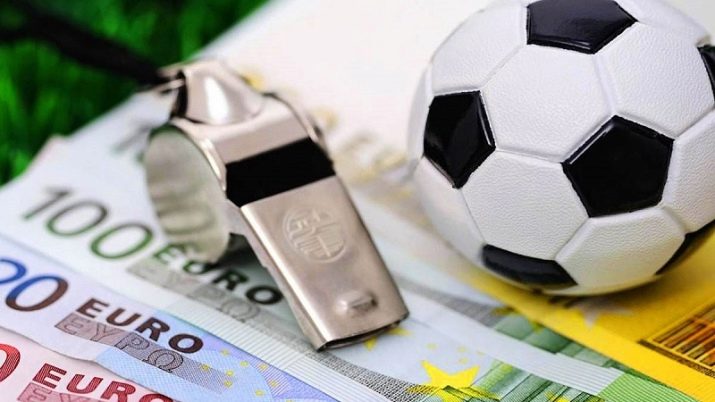Who is a capper and what does he do?

The work of a sports analyst (capper) on bets is becoming more and more popular. Predicting the results of competitions and competitions brings a good income, allows you to work remotely. But before you become a successful capper and make a lot of money, you should learn more about who he is, what he does, what it means in the world of betting.

Peculiarities
A sports analyst or capper is a person who knows exactly which team is worth betting on in a particular match or competition. His job is to closely monitor the affairs of the industry, draw up a detailed analysis of the situation, and make forecasts. But this does not mean that cappers are people mired in statistical calculations.
Most of the top sports analysts have successful careers in the type of competition that they undertake to evaluate. In fact, a capper is a professional who teaches others to place bets by providing them with information about the probability of victory of one or another participant or a team. These specialists can provide their services on an individual basis, sending the forecast directly to the client. Sports analysts are also required in bookmakers.
Translated from English, capper is a gambling partner. Accordingly, for betting lovers, this specialist really becomes something like a mentor or partner, suggesting the right decision. In sports betting, its role is to predict and provide clients with the resulting data on a confidential basis.Most often, access to information is provided as part of a paid subscription, online: by sending messages in messengers or by e-mail.
The capper is also responsible for evaluating the bets of various bookmakers and exchanges for the selected sporting event, indicating the most preferred odds options.

Responsibilities
Cappers are engaged in helping other people to make money on bets. Of course, analytical information only allows us to assume the likely outcome of a sporting event, match, meeting or fight. But experience and accurate forecasting allow professionals to maintain a high percentage of the reliability of the information provided.
The main responsibilities of sports analysts include the following functions.
- Closely track all information about the predicted sport. This means that you have to daily study information about the mood of athletes, their personal dramas, injuries, conflicts, readiness to compete. Even the change of the masseur at the sports base or the replacement of the field, the presence or absence of spectators in the stands can affect the prognosis. A professional is one of the first to know all these points, making adjustments to the previously drawn conclusions.
- Data processing and consolidation. They try to analyze information continuously, taking into account actual changes. This allows the capper to come to the final decision on the choice of the favorite by the time when he has to make the final forecast.
- Studying data on bookmakers. The summary statistics of the bets made is an important part of a specialist's work. This knowledge turns out to be key in determining the general trend, the mood of the fans to win or lose their favorite team. As practice shows, losses of favorites are quite rare.
- Keeping your own statistics. To become a good professional, it is not enough just to have access to general information that anyone can find. Own information base gives a specialist much more, costs absolutely free, allows to rely on real information when forecasting.
- Communication with the audience. If this is a private, personal consultation, then you have to communicate online, by phone or in person. Such services are quite expensive. When sending out forecasts by subscription, you also have to keep feedback from the audience.
These are the primary responsibilities of a professional sports analyst. In addition, he can write general information materials or comment on broadcasts as a journalist, visiting specialist.


Knowledge and skills
The knowledge and skills necessary for every capper are acquired mainly in a practical way. The analyst looks at statistics, in team sports, tracks team data, player rotations and transfers, and assesses draft prospects. A prerequisite for successful work is passion for specific sports. In addition, it is important to be able to weigh the real chances of victory for each of the contenders without unnecessary emotions. Often the capper has to adjust the predictions literally at the last moment due to the injury of the favorite, substitution in the team, and other force majeure.
A sports analyst does not take an interest in a particular game or competition as a fan or a fan of gambling. Its task is to make a forecast of the most probable course of events based on the totality of all factors. For a professional capper, you need knowledge in the field of mathematics, statistics, the basics of analysis. He spends most of his time drawing up graphs and tables, bringing together data from various sources. At the same time, it is equally important to keep track of any changes in the rules, the order of the championships and other aspects of the chosen sport.
Good knowledge of computer programs and even skills in their writing is a significant competitive advantage. Many successful professionals in this field create their own analytical tools to automate the processing of large amounts of data. However, real professionals do not rely solely on technology, checking the forecasts made in all parameters.
Developed communication skills can also be called useful for a representative of this profession. You can win the trust of potential customers only if the specialist himself is convincing enough.

Personal qualities
Only a person with a certain set of personal qualities can become a successful sports analyst. The road to cappers is definitely closed for gamblers who lose their heads at the sight of an opportunity to make a bet, people with an aggressive demeanor. Among the most important personal qualities that will have to be developed in this profession, the following characteristics can be noted.
- Learnability. Cappers are constantly learning something, assimilating new knowledge, analyzing huge amounts of information. All this allows them to accumulate a unique knowledge base that distinguishes a professional from an amateur.
- Self-control. Cool head and strategic thinking should prevail over emotions. Sports analytics is akin to a game of poker, where the calmest and most balanced of the participants wins. Of course, the capper can have personal preferences as well. But even when analyzing the match of his favorite team, a professional must be impartial, rely on facts and statistics, and not on his own sympathies.
- Involvement. First of all, a successful sports analyst is a person who loves sports, is genuinely interested in it, and also knows the basics of data systematization. Experienced cappers easily name the statistics of the games of any team for a decade, they know exactly its composition and the state of health of the players. They understand the tactics and schemes of the game, they can predict the actions of the coach and possible score numbers. Anyone for whom forecasts are just a way to make money has no chance of being successful in the profession.
- Stress tolerance. It's not just victories that happen in the sports analyst profession. At the same time, in case of a mistake, even if it was caused by objective reasons of an unpredictable nature, for example, an injury of the leading player or the removal of most of the team from the field, the customers will still blame the capper. Some disappointed bettors, after losing a large amount of money, may threaten or insult the analyst who issued their forecast. Without stress resistance, there is simply nothing to do in this job.
These are the very foundations on which the capper works. The absence of at least one of these qualities will lead to disappointment in the profession.

Education
In order to become a capper, it is desirable to have a higher education: mathematics, technical, humanitarian. Many successful professionals in this field have graduated from the Faculty of Journalism. Education in the field of statistics and analytics is also appreciated. If a specialist wants to work on a professional basis, it will be most useful to enter a university in a profile that is as close as possible to the desired position.
In particular, you can choose between RUDN University, the Boris N. Yeltsin Federal University, Moscow State University, Moscow State University. It has journalism departments that train future sports analysts and commentators. In the learning process, you can get the following skills and knowledge:
- the ability to process and memorize large amounts of information;
- mastering basic computer programs;
- efficiency in data collection;
- extraction of insider information.
In fact, education gives cappers great advantages, and sometimes access to the world of sports, the ability to communicate with direct participants in matches, the coaching staff.
The practice of working as a sports journalist comes in handy for those who go to freelance.But many successful commentators and forecasters work in specialized online publications, where analytics are published with no less success.

How to find a job?
Typically, cappers work in bookmakers or open a private practice - with some experience and fame, this is a completely feasible plan. In most cases, communication is carried out remotely, you can work from home, monitoring broadcasts in a convenient mode. Those advisor-cappers who choose "solo swimming" usually have a relationship with the sport in the past: they themselves are players, coaches, commentators. These people have knowledge and skills that are inaccessible to an ordinary fan - this is their significant competitive advantage, which allows them to charge substantial sums for services without intermediaries.
It is quite difficult for an ordinary beginner to obtain the status of a professional capper without recommendations.... To work in a bookmaker's office, you will need to be tested. It is important to determine from the outset what sport the analyst will specialize in. The most demanded directions are games. These are football, hockey, basketball, American football, rugby. According to them, forecasts are most often ordered; among other sports disciplines, boxing, tennis, MMA are considered relevant in the field of betting.
There are many places where a capper can find a job.
- Social media. This can be a public post on the network or a Telegram channel. They often look for hired analysts who receive funds for a paid subscription to the latest forecasts or a percentage of the winnings if the cooperation is with a bookmaker.
- Sites dedicated to a specific sport. In specialized online media, forecasts make up a significant part of the published content. Analysts here predict the most likely outcome based on statistics and other compelling arguments. The main income of sites is from advertisements.
- Personal site. Suitable for those who want to have more freedom of action. At the initial stage, you will have to spend time earning a reputation. In the future, clients will appear without unnecessary advertising. In addition to sending out predictions, you can make money on personal consultations, train new tipsters or bettors on the basics of analytics.
- Paid forecast companies. They collect the best analysts on their platforms, help them promote their services, find clients. It is important to understand that you will have to pay for a subscription to access the services. It will not pay off immediately, but such investments allow you to immediately reach a wide audience.
A capper-applicant should be prepared for the fact that he will be asked to make a forecast for a specific game as a check. An announcement is additionally prepared for each analytical material, a forecast of the expected development of events is made. Upon successful passing of the test, it will be possible to discuss employment on an ongoing basis.










